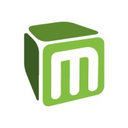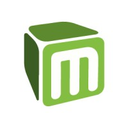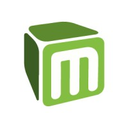Fishbowl vs Megaventory (2025 Comparison)

Fishbowl offers comprehensive inventory management with seamless QuickBooks integration. Its robust features and scalability make it ideal for growing businesses with complex needs.
- Comprehensive inventory management features
- Seamless QuickBooks integration
- Scalable for growing businesses
- Requires time to master
- Higher price point
Free plan?
NoStarting price
$329 per month
Megaventory provides a user-friendly interface and excellent customer support. Its affordable pricing and intuitive design make it a great choice for budget-conscious businesses.
- User-friendly interface
- Excellent customer support
- Affordable pricing
- Less comprehensive features
- Limited scalability
Free plan?
YesStarting price
$135 per monthWhat is Fishbowl?
Fishbowl is a comprehensive inventory management software that helps businesses streamline their operations. It integrates seamlessly with QuickBooks, providing a robust solution for managing inventory, orders, and manufacturing processes. With Fishbowl, you can automate many of your inventory tasks, reducing manual errors and saving time. It is particularly beneficial for small to medium-sized businesses looking to improve their inventory accuracy and efficiency.
What is Megaventory?
Megaventory is a cloud-based inventory management software designed to help businesses manage their stock, orders, and manufacturing processes efficiently. It offers a user-friendly interface and integrates with various e-commerce platforms, making it ideal for businesses looking to streamline their operations. Megaventory provides real-time inventory tracking, which helps businesses make informed decisions and improve their overall productivity.
Pros and Cons of Fishbowl vs Megaventory

Pros & Cons of Fishbowl
- Fishbowl offers a wide range of inventory management features, making it a great choice for businesses with complex needs. Its comprehensive tools help streamline operations and improve efficiency.
- Fishbowl integrates seamlessly with QuickBooks, providing a cohesive experience for managing your finances and inventory. This integration helps reduce manual errors and saves time.
- Fishbowl is designed to scale with your business, making it suitable for companies experiencing rapid growth. Its robust features can handle increased demand and complexity.
- Fishbowl's powerful features may require a learning curve, especially for users new to inventory management software. Investing time in training can help maximize its potential.
- Fishbowl's comprehensive features come at a higher price point, which may be a consideration for budget-conscious businesses. However, its robust capabilities can justify the investment.

Pros & Cons of Megaventory
- Megaventory offers an intuitive interface that is easy to navigate, making it accessible for users with varying levels of technical expertise. This ease of use can save time and reduce frustration.
- Megaventory is known for its responsive customer support, which can be a valuable resource for users needing assistance. This support can help resolve issues quickly and efficiently.
- Megaventory offers competitive pricing, making it an attractive option for budget-conscious businesses. Its affordable plans provide good value for the features offered.
- While Megaventory offers strong features, it may not be as comprehensive as some competitors. Businesses with complex needs may require additional tools or integrations.
- Megaventory may not handle rapid growth as efficiently as some other solutions. Businesses experiencing significant expansion may need to consider scalability when choosing a software.
Fishbowl vs Megaventory: At A Glance
Value to Price
Fishbowl offers a robust set of features that justify its price, making it a great investment for businesses looking to streamline their inventory management. Megaventory, while slightly more affordable, offers a good balance of features for its price. If you are looking for a more feature-rich solution, Fishbowl might be the better choice.
Ease of Use
Megaventory shines in terms of ease of use with its intuitive interface, making it accessible for users with varying levels of technical expertise. Fishbowl, while powerful, may require a bit more time to master. If user-friendliness is a priority, Megaventory is the way to go.
Functionality
Fishbowl excels in functionality, offering a comprehensive suite of tools for inventory management, order processing, and manufacturing. Megaventory also provides strong functionality but is slightly less comprehensive. For businesses needing extensive features, Fishbowl is the superior option.
Scalability
Fishbowl is designed to scale with your business, making it suitable for growing companies. Megaventory also offers scalability but may not handle rapid growth as efficiently. If your business is expanding quickly, Fishbowl is likely the better fit.
Integrations
Fishbowl integrates seamlessly with QuickBooks and other platforms, providing a cohesive experience. Megaventory offers integrations as well, but Fishbowl's options are more extensive. If integration capabilities are crucial, Fishbowl is the better choice.
Customer Support
Megaventory provides excellent customer support, often praised for its responsiveness. Fishbowl also offers solid support, but Megaventory's service is slightly more acclaimed. If customer support is a deciding factor, Megaventory might be the better option.
Security
Both Fishbowl and Megaventory prioritize security, offering robust measures to protect your data. Fishbowl has a slight edge with its advanced security features. If security is a top concern, Fishbowl is the safer bet.
Overall Rating
Fishbowl scores higher overall due to its comprehensive features and scalability, making it ideal for businesses with complex needs. Megaventory, while slightly lower in overall rating, is a strong contender for those seeking ease of use and excellent support.
Fishbowl vs Megaventory: A Detailed Breakdown of Key Features
Inventory Tracking
Fishbowl offers advanced inventory tracking features that allow you to monitor stock levels, set reorder points, and track inventory across multiple locations. Megaventory also provides robust tracking capabilities, but Fishbowl's features are more comprehensive. If you need detailed inventory tracking, Fishbowl is the better choice.
Order Management
Fishbowl excels in order management, offering tools to streamline order processing and fulfillment. Megaventory also provides strong order management features, but Fishbowl's capabilities are more extensive. For businesses with complex order management needs, Fishbowl is the superior option.
Manufacturing
Fishbowl offers comprehensive manufacturing features, including work orders and bill of materials management. Megaventory provides manufacturing capabilities as well, but Fishbowl's features are more robust. If manufacturing is a key aspect of your business, Fishbowl is the better choice.
Reporting
Fishbowl provides detailed reporting features that allow you to generate custom reports and gain insights into your business operations. Megaventory also offers reporting capabilities, but Fishbowl's features are more advanced. If reporting is a priority, Fishbowl is the better option.
User Interface
Megaventory offers a user-friendly interface that is easy to navigate, making it accessible for users with varying levels of technical expertise. Fishbowl, while powerful, may require a bit more time to master. If ease of use is a priority, Megaventory is the way to go.
Mobile Access
Both Fishbowl and Megaventory offer mobile access, allowing you to manage your inventory on the go. Megaventory's mobile app is slightly more intuitive, making it a better choice for users who need mobile access. If mobile access is important, Megaventory is the better option.
Pricing Comparison of Fishbowl and Megaventory
To assist you in making an informed choice, we’ve outlined the pricing plans and essential features of Fishbowl and Megaventory. This comparison will highlight the best option for managing your inventory.

Fishbowl Pricing Plans
- Comprehensive warehousing and manufacturing solution.
- Real-time inventory management across all locations.
- Integration with QuickBooks and Xero for accounting.
- Unlimited US-based support via phone, chat, and email.

Megaventory Pricing Plans
- 20 Locations, 20k Products, 20k Clients for scalability.
- 2 Hours Training to get started quickly.
- 5 Different Integrations for seamless operations.
- 1 Company setup for centralized control.
- Enhanced support and dedicated resources.
- Advanced integrations and custom features.
- Scalable solutions for growing businesses.
- Comprehensive onboarding and training.
Our Rating Methodology
We rigorously evaluate each inventory management software, focusing on key factors like functionality, scalability, and ease of use. By analyzing user reviews and conducting thorough testing, we ensure our recommendations fit your needs. Each factor is weighted by importance to deliver a reliable final rating, helping you make informed decisions.
Fishbowl or Megaventory: Which One Matches Your Business Needs?
Choose Fishbowl If You Need ...
- Comprehensive inventory management
If you need a comprehensive inventory management solution with robust features and seamless QuickBooks integration, Fishbowl is the ideal choice. Its extensive capabilities make it suitable for businesses with complex needs.
- Scalable for growing businesses
If your business is experiencing rapid growth and requires a scalable solution, Fishbowl is the better option. Its ability to handle increased demand and complexity makes it a great fit for expanding companies.
Choose Megaventory If You Need ...
- User-friendly interface
If you prioritize ease of use and need a user-friendly interface, Megaventory is the way to go. Its intuitive design makes it accessible for users with varying levels of technical expertise.
- Affordable pricing
If you are looking for an affordable inventory management solution with good value for money, Megaventory is the better choice. Its competitive pricing makes it an attractive option for budget-conscious businesses.
Frequently Asked Questions
 Which tool offers better inventory tracking features?
Which tool offers better inventory tracking features?
 Is Megaventory suitable for rapidly growing businesses?
Is Megaventory suitable for rapidly growing businesses?
 How do the customer support services compare?
How do the customer support services compare?
 Which tool is more affordable?
Which tool is more affordable?
 Does Fishbowl integrate with QuickBooks?
Does Fishbowl integrate with QuickBooks?
 Which tool is easier to use?
Which tool is easier to use?

Martin Lunendonk
Martin Lunendonk is a senior tech writer specializing in website builders, web hosting, and ecommerce platforms. With a background in finance, accounting, and philosophy, he has founded multiple tech startups and worked in medium to large tech companies and investment banking, bringing deep expertise and reliable insights to his software reviews.



